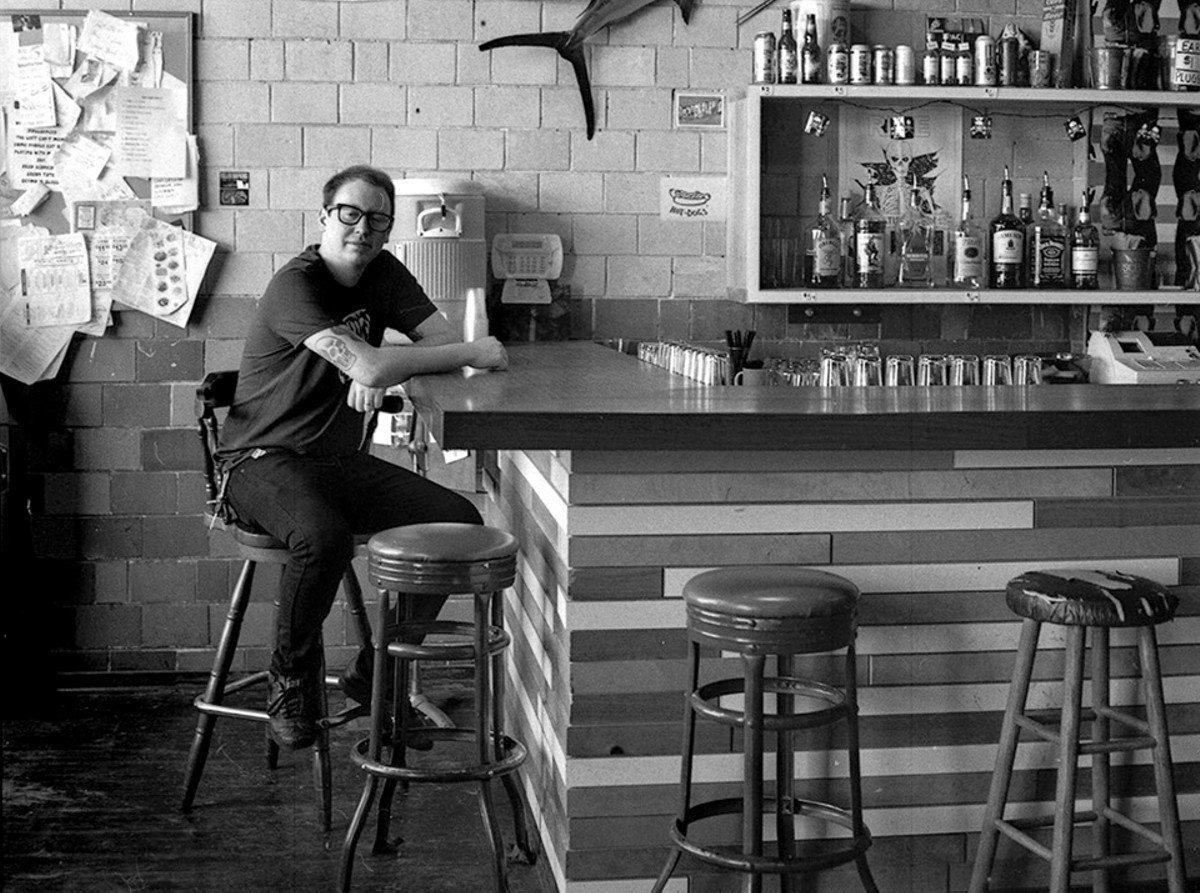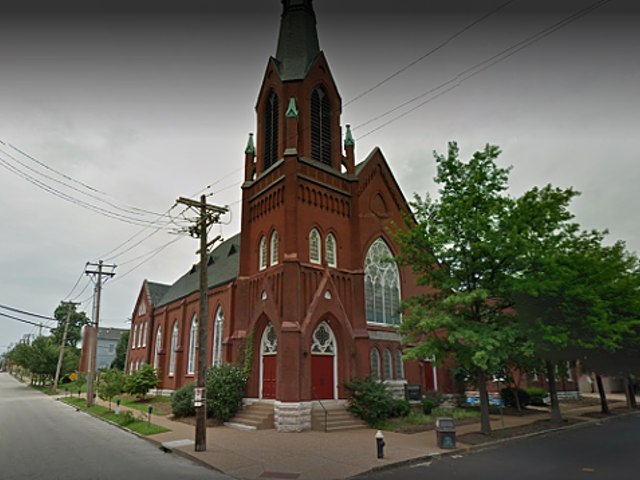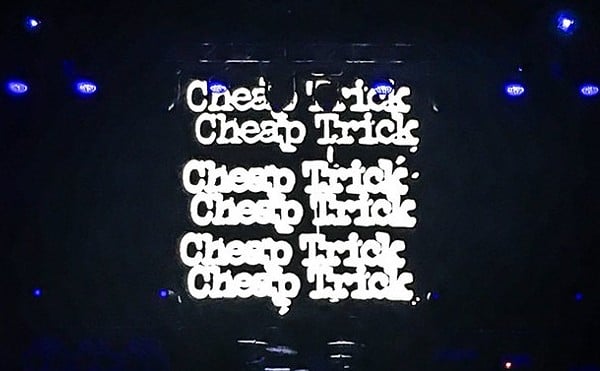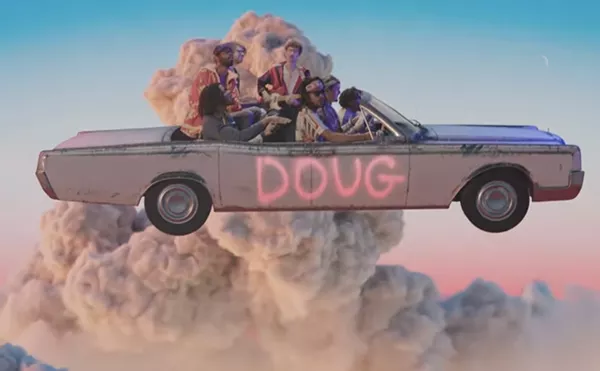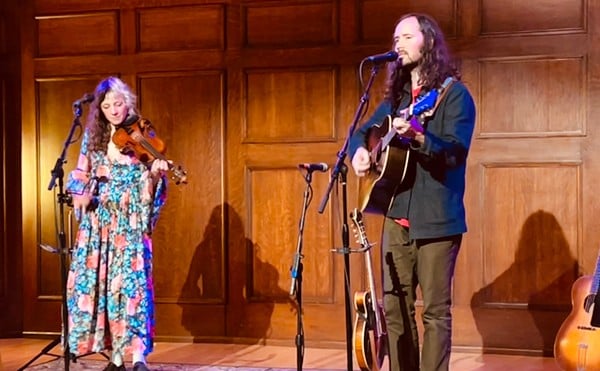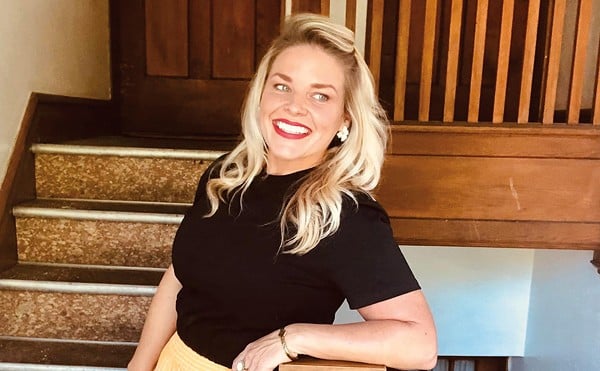There are those who practice the do-it-yourself ethos — musicians who master the means of production and control the creation and dissemination of their art — and then there's Matt Stuttler. He has helmed a few bands over the past decade (first in the boy/girl duo Burrowss and, for the last five years, in Shitstorm), gigging in and out of St. Louis. He's also been the booking agent for Cherokee Street's Foam for the past six years, finding a home for up-and-coming locals and hard-to-categorize touring acts.
But that's only a sliver of the 30-year-old's output. Stuttler opened the Sinkhole, a Carondelet neighborhood venue specializing in the noisier corners of rock, hardcore, punk and experimental music, about two years ago with a few partners. Six months later, Stuttler was the sole owner and operator of the space, a stage-free club that does its best to obviate the line between performer and audience.
Lately, Stuttler's DIY spirit has evolved into more of a do-everything-yourself spirit as Sinkhole launches its own record label.
"The concept of a record label was always part of the concept for the venue," Stuttler says. "The band could play here, record here and put out a release."
So far Sinkhole Records has released a few Shitstorm EPs, but a pair of split-cassette releases — a Beach Bodies/Banana Clips offering and a Cyanides/TSP joint — is more in the spirit of what Stuttler envisions. And while it is true that Stuttler is a member of every one of those bands except for TSP, his vision is to give a curated but comprehensive tour of the local scene through these tapes.
For the fall, Sinkhole Records has plans to release a split with contributions from Bucko Toby and a new project from Langaleers member Cory Pruneau. Stuttler also plans to partner with Gateway City Hardcore, an umbrella group that does shows a few times a month with local and touring bands. The goal is to record about fifteen bands from the scene (including Time and Pressure, Brute Force and Blight Future) for a full-length comp.
Stuttler admits that hardcore isn't exactly his scene — his bands tend toward the frenetic side of garage rock or the hazy, detuned tunefulness of psych-kissed indie rock — but bringing disparate groups together is a stated goal with the Sinkhole. In fact, he received a grant from the Carondelet Business Association to build out the studio side of the Sinkhole with the express purpose of bringing more people to the area.
With that studio space now operational, Stuttler's goal is bearing fruit. "It's great for live tracking, getting everyone going at once," Stuttler says of the studio space, which abuts the venue — though the space is small enough that both can't be used simultaneously. "The green room doubles as a live room for recording."
Overall, Stuttler notes that the venue has found its feet, despite being somewhat off the beaten path. "It's only gotten better the longer we've been here," he says. "It's taken people a few minutes to figure out where we're at, but once we got our name on concert listings, bands started playing here more regularly: Fister, Lion's Daughter, the Gorge all booked shows when we were just starting. A lot of the heavy music in the city has been our scene."
Sinkhole Records' most recent offering is the split with Cyanides and TSP; Stuttler plays bass in the former but it's really a showcase for co-leaders Andy Kahn, formerly of Troubadour Dali, and relative newcomer Brian Will. The band bonded over a shared love of Velvet Underground and psych-rock, and on Cyanides' four songs, that passion gets transmuted into something caught between lo-fi indie and yearning shoegaze. TSP, a duo of Andy Basler and Keegan Wyatt, offer three songs that run the gamut from mangled harmonic folk-rock to bare-bones riff-rock to spoke-sung minimalism. The tape is a varied set from both bands, but fans of one will almost surely dig the other.
"I think it's cool to be able to take a cassette home from the show," he says of the label's preferred medium. "Even if you don't have a cassette player, it's an artifact from the night. It's about max exposure for both artists on the split; you're exposing one band's fans to the other."

